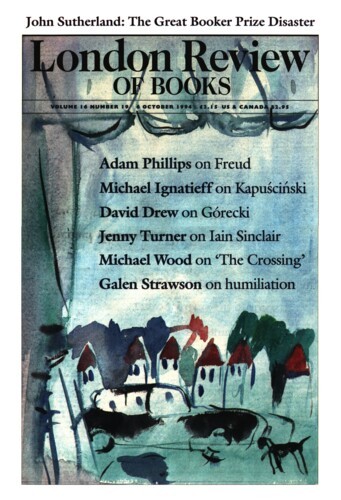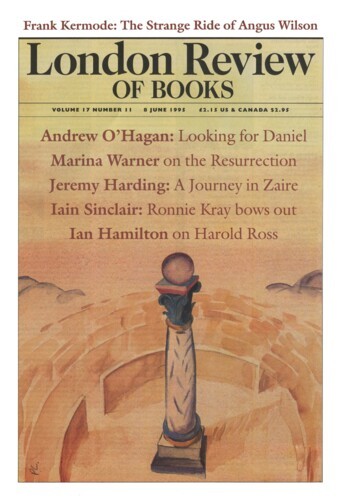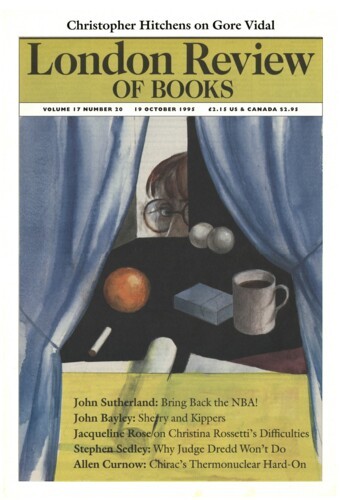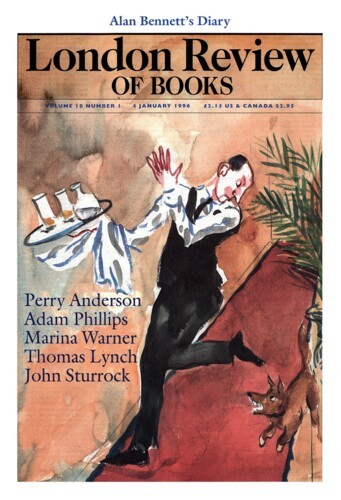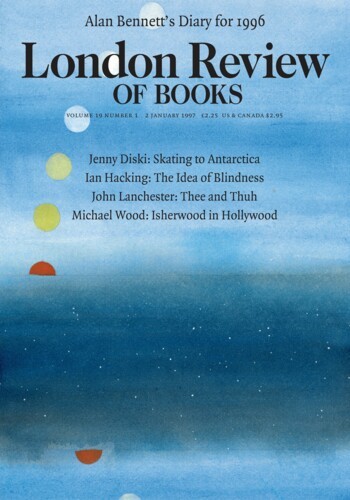Story: ‘Four Days before the Saturday Night Social’
Amit Chaudhuri, 6 October 1994
It was after school hours. Almost an hour ago, either Krishna or Jimmy had rung the bell, a continual pealing that seemed to release a spring in the backs of the boys and girls, who jumped out of their chairs and proceeded to throw, without ceremony or compassion, their books into their satchels. It was then useless for a teacher to try to be heard, or to beat the table despairingly with the back of a duster, raising dramatic puffs of chalk-dust, for the boys hard-heartedly assumed deafness; one or two ‘good girls’ who raised their arms even now, a full twenty seconds after the bell, to ask a relevant question, further irritated the teacher, who, her hands powdered with sediments of green and white chalk, wanted to be upstairs in the teachers’ common room, pouring tea from her cup into her saucer and very slowly sipping it. Preparing, like Atlas, to lift a tottering load of brown-paper-covered exercise books full of long, ingenious bluffers’ answers, she, in a moment of mischief and vindictiveness, said to a ‘good girl’: ‘Lata, will you please carry these for me upstairs?’ So impenitently angelic was the girl that she agreed without a murmur of resentment, with an air of perpetual readiness, even.
